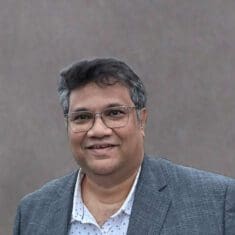Bachelor of Science in Electrical Engineering
Freshman applicants should have completed four years of high school mathematics, one year of high school chemistry, and one year of high school physics. Students are also encouraged to include courses in mechanical drawing and computer programming.
Community college transfers should complete the sequence of mathematics, chemistry, physics, and engineering courses listed in freshman and sophomore years under the sample sequence of courses at the community college.
Electrical Engineer
The required upper-division courses provide a broad and basic understanding of the main fields in electrical engineering. Upon advisement, each student may choose an area of specialization during their senior year in communications, computers, electronics, control, and robotics, or power engineering. Graduates of the Electrical Engineering program are expected to have, within a few years of graduation:
- Established themselves as practicing professionals or engaged in graduate study in electrical engineering or a related field.
- Demonstrated an ability to be productive and responsible professionals.
The number of units required for graduation and the General Education requirements are described in the Undergraduate Education section of this Bulletin. For information for all engineering students, see Undergraduate Programs in Engineering above.
A number of required and elective lecture courses in the electrical engineering program have corresponding laboratory courses that students are either required or strongly encouraged to take concurrently. These course pairs are: https://bulletin.sfsu.edu/colleges/science-engineering/engineering/bs-electrical-engineering/
